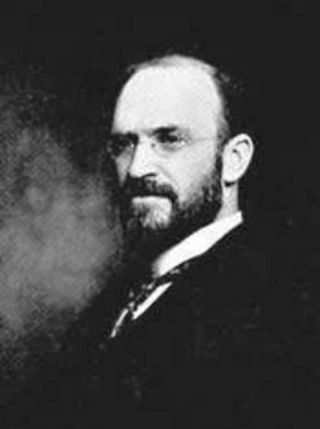Decimal classification is a type of library classification. Examples include:
Binary may refer to:
The Bliss bibliographic classification (BC) is a library classification system that was created by Henry E. Bliss (1870–1955) and published in four volumes between 1940 and 1953. Although originally devised in the United States, it was more commonly adopted by British libraries. A second edition of the system (BC2) has been in ongoing development in Britain since 1977.

The Dewey Decimal Classification (DDC), colloquially known as the Dewey Decimal System, is a proprietary library classification system which allows new books to be added to a library in their appropriate location based on subject. It was first published in the United States by Melvil Dewey in 1876. Originally described in a 44-page pamphlet, it has been expanded to multiple volumes and revised through 23 major editions, the latest printed in 2011. It is also available in an abridged version suitable for smaller libraries. OCLC, a non-profit cooperative that serves libraries, currently maintains the system and licenses online access to WebDewey, a continuously updated version for catalogers.

A library classification is a system of organization of knowledge in which sources are arranged according to the classification scheme and ordered very systematically. Library classifications are a notational system that represents the order of topics in the classification and allows items to be stored in the order of classification. Library classification systems group related materials together, typically arranged as a hierarchical tree structure. A different kind of classification system, called a faceted classification system, is also widely used, which allows the assignment of multiple classifications to an object, enabling the classifications to be ordered in many ways.

The Universal Decimal Classification (UDC) is a bibliographic and library classification representing the systematic arrangement of all branches of human knowledge organized as a coherent system in which knowledge fields are related and inter-linked. The UDC is an analytico-synthetic and faceted classification system featuring detailed vocabulary and syntax that enables powerful content indexing and information retrieval in large collections. Since 1991, the UDC has been owned and managed by the UDC Consortium, a non-profit international association of publishers with headquarters in The Hague, Netherlands.

Melville Louis Kossuth "Melvil" Dewey was an influential American librarian and educator, inventor of the Dewey Decimal system of library classification, a founder of the Lake Placid Club, and a chief librarian at Columbia University. He was also a founding member of the American Library Association. Although Dewey's contributions to the modern library are widely recognized, his legacy is marred by allegations of sexual harassment, racism, and antisemitism.
Dewey may refer to:
Classification is a process related to categorization, the process in which ideas and objects are recognized, differentiated and understood. Classification is the grouping of related facts into classes. It may also refer to a process which brings together like things and separates unlike things.
DD, dd, or other variants may refer to:
Decimal system may refer to:
Dot-decimal notation is a presentation format for numerical data. It consists of a string of decimal numbers, using the full stop (dot) as a separation character.
A faceted classification is a classification scheme used in organizing knowledge into a systematic order. A faceted classification uses semantic categories, either general or subject-specific, that are combined to create the full classification entry. Many library classification systems use a combination of a fixed, enumerative taxonomy of concepts with subordinate facets that further refine the topic.
KDC may refer to:
50 cents is a coinage value in many systems using decimal currencies.
A 10 cent coin is a coinage value in many systems using decimal currencies.
Minnesota's 6th congressional district includes most or all of Benton, Carver, Sherburne, Stearns, Wright, and Anoka counties. Many of the Twin Cities' outer northern and western suburbs are included within the boundaries of this district, such as Blaine, Andover, Chaska, Ramsey, St. Michael-Albertville, Elk River, Chanhassen, Otsego, Lino Lakes, Buffalo, Ham Lake, Monticello, Waconia, Big Lake, East Bethel, and Victoria. The St. Cloud Area is the other major center of population for the district, including the cities of St. Cloud, Sartell, and Sauk Rapids.
Decimal could mean:
The Union Cycliste Internationale (UCI), the world's governing body in the sport of bicycle racing, classifies races according to a rating scale.
Otlet Glacier is a glacier 9 nautical miles (17 km) long, flowing along the south side of Fontaine Heights to the west coast of Graham Land. Roughly charted by the British Graham Land Expedition (BGLE) under Rymill, 1934–37. More accurately mapped by the Falkland Islands Dependencies Survey (FIDS) from photos taken by Hunting Aerosurveys Ltd. in 1956–57. Named by the United Kingdom Antarctic Place-Names Committee (UK-APC) for Paul Otlet (1868–1944), Belgian documentalist, co-founder of the Institut International de Bibliographie at Brussels, 1895, and of the Universal Decimal Classification. He was a pioneer of the rational organization of polar information by an international classification scheme.
A one-cent coin or one-cent piece is a small-value coin minted for various decimal currencies using the cent as their hundredth subdivision.